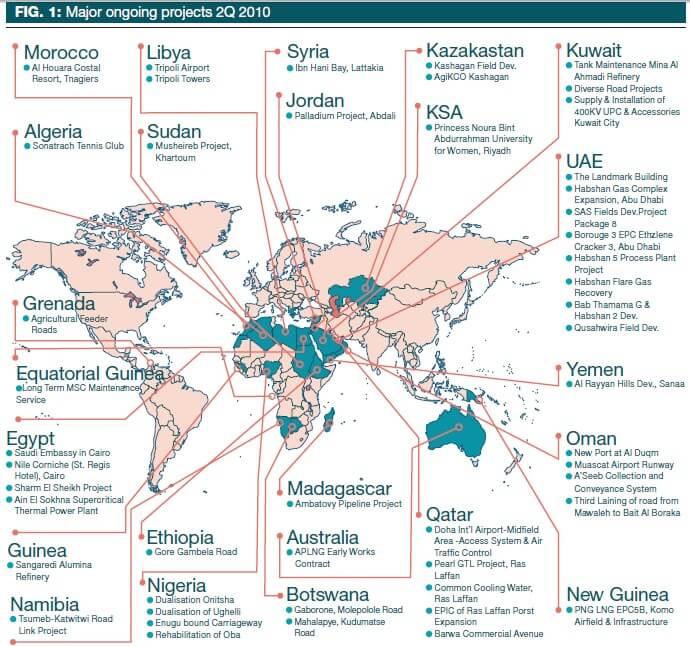Image Source: Pixabay via Pexels
The Consolidated Contractors Company (CCC) was founded in 1952. CCC is a heavily globally diversified company and it employs over 110,000 people (2010) encompassing over 60 nationalities in over 27 offices around the world. CCC manages an annual revenue of over US$4 billion. Samer Khoury, President of Engingeering and Construction in CCC and son of one of the founding member Said Khoury, talks to Tharawat magazine about managing a diversified family business.
CCC was formally established in 1952 in Beirut, Lebanon by Hassib Sabbagh, his brother-in-law Said Khoury, and their friend Kamel Abdulrahman. At the time it was one of the very first Arab construction companies and today is undoubtedly one of the largest. CCC has its current head quarters in Athens, Greece. Said Khoury is the President and Chairman of the group and two of his sons are members of the board of directors. CCC is now a highly diversified company carrying out construction, engineering, procurement, development, and investment activities around the world with emphasis on the MENA region.
Diversity of Services
1. Heavy Civil Construction: power plants, bridges and highway interchanges, harbour and docks, and civil work for process plants and the petrochemical industry.
2. Highways, roads and airports.
3. Water and sewage treatment plants, pumping stations and all related networks.
4. Mechanical Construction: fabrication and installation of piping, erection of equipment and vessels, structural steel works for light industry and heavy mechanical works (refineries, petrochemical plants, gas oil separation plants, oil loading and off loading terminals).
5. Pipelines for water, gas and oil,
6. High Quality Buildings.
CCC was awarded quality certification by BVQI to ISO 9001, ISO 14001 and OHSAS 18001.

Q&A with Samer Khoury
Designation: President (Engineering & Construction)
Family Generation: 2nd
Country: Lebanon
Successfully running a diversified business portfolio depends on a variety of factors; where would you see the biggest challenges facing business leaders running highly diversified businesses?
I believe that in the leadership of a diversified company there are two main aspects to consider. Firstly, we have to be close to the market and anticipate any and all changes in order to be able to react ahead of others. Secondly, we must think and act long-term as short-term goals can sometimes hurt a long-term strategy and, as a family business, we must always look ahead of about 5 to 10 years.
How can a manager make sure attention is evenly distributed across all diversified units?
We have to have enough trust in the people we assign to the various units. They have to be able to call the shots and determine when they need us, as higher management or family members, to interfere.
Do you believe that family businesses are better equipped to diversify than other businesses?
Family businesses can take decisions faster than other companies and, therefore, when we see an opportunity we can jump into it. In several cases this is how we leverage on our entrepreneurial skills towards investing in new businesses.
In an organisation with diversified businesses each business faces its own, specific challenges; in such complexity, how do you ensure that the vision and mission of the parent company is implemented throughout the portfolio?
Family companies have a specific family culture and this culture encompasses, in many cases, the values of the family company founder. The job of the second and third generation owners is to identify these values and make sure they are communicated across the entire company and are adhered to. This can easily be done by frequent meetings and by counter action initiated by top management re-affirming these values.
Do you believe that a strategy of diversification is able to stimulate growth in the current, rapidly changing economic landscape?
I believe diversification is important, but only if the opportunity arises. Sticking to the company core business is the best advice I would give any firm.
Tharawat Magazine, Issue 10, 2011

















